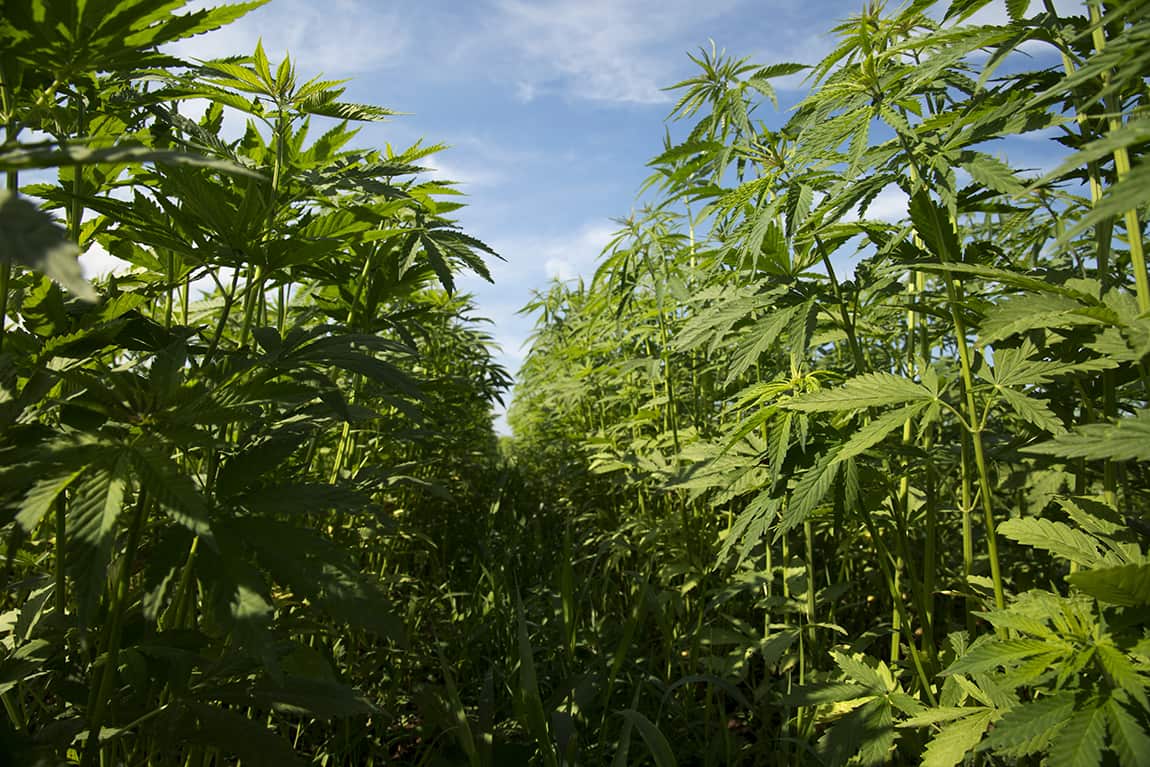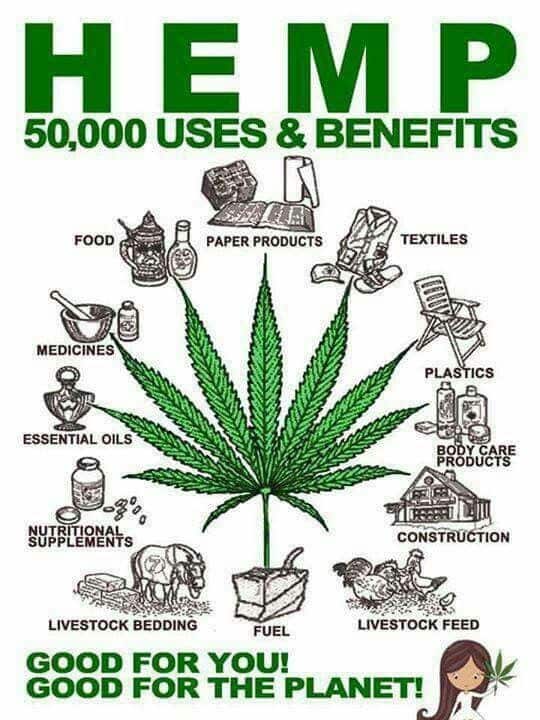CBD Marketing, Hemp Industry Challenges, Marijuana Research And Psychedelics Face Congress

The new legislation and documents posted by the House Appropriations Committee also address home loan benefits for veterans who work in state-legal cannabis markets, “genomics and bioinformatics research” into hemp, and broad protections for the hemp industry.
CBD Marketing, Spending & More
These provisions come out of Fiscal Year 2023 spending bills and their relevant reports for Agriculture, Rural Development, Food and Drug Administration (FDA), and Related Agencies, as well as Military Construction, Veterans Affairs (VA), and Related Agencies. There have been numerous other cannabis-related components already included in other appropriations legislation so far this session.
For the report on the U.S. Department of Agriculture (USDA), there’s a section that’s similar to past language that talks about having the agency work with the Drug Enforcement Administration (DEA) on the issue of so-called “hot hemp” that contains more than the federally legal 0.3 percent THC limit, as prescribed under the 2018 Farm Bill. This past year has been a whirlwind for small CBD businesses around the nation, as CBD marketing and manufacturing laws continue to be challenged.
Specifically, lawmakers again talked about industry concerns that hemp could be compromised, and businesses could face penalties because the extraction process can temporarily raise the THC concentration to excess levels. The committee said that Congress “intentionally expanded the definition of hemp” to make sure that in-process materials wouldn’t be criminalized, and they’re continuing to request interagency coordination to develop better clarifying guidance on that issue.
“Hemp Extract Regulation.—The Committee is concerned about the inconsistencies in the regulation of the production of hemp by USDA and DEA. Congress vested primary regulatory authority in USDA and expects other regulatory actions to align with it. Congress intentionally expanded the definition of hemp to include derivatives, extracts and cannabinoids in an effort to avoid the criminalization of hemp processing. Committee understands that in-process hemp extract may temporarily exceed the delta-9 THC concentration of 0.3 percent before being packaged and sold as a finished product for consumption. Therefore the Committee directs USDA to coordinate directly with the DEA to present the industry with guidance and information on in-process extracted material.”
The committee also said that it is “concerned about the proliferation of foods and dietary supplements marketed in violation of” federal law, “including products containing derivatives of the cannabis plant.” It said non-compliant cannabis products could contain dangerous contaminants.
But rather than criticize FDA for slow-walking the rulemaking process to provide a regulatory pathway for such CBD marketing, the report simply says that the committee “recognizes FDA’s efforts undertaken thus far, including research, requests for data, consumer education, issuance of guidance and policy around cannabis-based drug product development, and some enforcement against wrongdoers.”
“Cannabidiol Oil.—The Committee is concerned about the proliferation of foods and dietary supplements marketed in violation of the Federal Food, Drug and Cosmetic Act (FFDCA), including products containing derivatives of the cannabis plant. The Committee is aware that non-FFDCA-compliant products pose potential health and safety risks to consumers through misleading, unsubstantiated, and false claims that cannabis and cannabis derivatives can treat serious and life-threatening diseases and conditions, including COVID–19. Such products may also be contaminated with harmful substances. The Committee recognizes the FDA’s efforts undertaken thus far, including research, requests for data, consumer education, issuance of guidance and policy around cannabis-based drug product development, and some enforcement against wrongdoers. The Committee also recognizes that FDA is considering a public rule-making process or enforcement discretion policy that could permit one compound in cannabis, cannabidiol (‘‘CBD’’), in foods and/or dietary supplements. The Committee expects the FDA to proceed in a manner that preserves public health, which may include limits in finished products on CBD and THC in total concentration levels and in recommended daily servings. The Committee also expects the FDA to preserve the integrity of its drug development and approval processes, which ensures that products marketed as drugs have undergone a rigorous scientific evaluation to assure that they are safe, effective, pure, and potent.”
FDA Sends Warning Letters
To be sure, FDA has taken certain steps, including issuing warning letters to companies that have allegedly marketed cannabis products in seriously misleading ways. But lawmakers and stakeholders have previously been more aggressive in their requests to have the agency move more expediently to resolve the problem. This is not the first time the FDA has sent, illicit warning letters to businesses warning of CBD marketing, and vending; as they did it previously with small Kratom businesses with devastating impacts.
Also in the spending report is a section encouraging USDA to promote “genomics and bioinformatics research” into hemp in order to identify “genetic control of key production and product quality traits” of the crop.
“Hemp Whole-Genome Bioinformatics.—The Committee encourages ARS to conduct genomics and bioinformatics research in collaboration with capable institutions to elucidate the genetic control of key production and product quality traits of the hemp plant. In addition, the Committee also encourages ARS to partner with institutions already engaged in such research to conduct hemp genetic improvement research and breeding with new breeding and editing techniques.”
The base spending bill for FDA and the Agriculture Department also includes a section stating that no federal funds appropriated under the legislation can be used to interfere in lawful hemp programs.
“SEC. 741. None of the funds made available by this Act or any other Act may be used—
(1) in contravention of section 7606 of the Agricultural Act of 2014 (7 U.S.C. 5940), subtitle G of the Agricultural Marketing Act of 1946, or section 10114 of the Agriculture Improvement Act of 2018; or
(2) to prohibit the transportation, processing, sale, or use of hemp, or seeds of such plant, that is grown or cultivated in accordance with section 7606 of the Agricultural Act of 2014 or Subtitle G of the Agricultural Marketing Act of 1946, within or outside the State in which the hemp is grown or cultivated.”
Missing from the FDA and USDA spending bill and report are at least two relevant cannabis provisions from last year. One called for the extension of the 2014 Farm Bill hemp pilot program and the other requested that USDA study and issue recommendations on barriers to minority participation in the hemp industry. It’s not clear if the department ever complied with that request.
For the most recent VA spending bill and report, the committee said it recognizes that the department has taken steps to clarify that simply working in a state-legal marijuana market does not render a veteran ineligible for home loan benefits under VA and it’s working with lenders “to improve communication with eligible lending institutions to reduce confusion.”
“Home Loan Income Verification.—The Committee understands that as directed by House Report 116–63, VA has clarified that nothing in VA statutes or regulations specifically prohibits a veteran whose income is derived from state-legalized cannabis activities from obtaining a certificate of eligibility for VA home loan benefits. The Committee understands that VA is working to improve communication with eligible lending institutions to reduce confusion among lenders and borrowers on this matter and looks forward to receiving the report to the Committee requested in House Report 117–81.”
And it again tackles the issue of marijuana research for the veteran community.
“Cannabis Research.—The Committee notes that VA has made progress on cannabis research and continues to request updates on the status of this research, as described in House Report 116–63.”
Future of CBD & Marijuana Marketing, Manufacturing and Vending
Finally, appropriators emphasized that there’s a need to support and enhance research into “new methods to treat PTSD.” And that includes taking the recommendations of a federal commission that released a report in 2020 talking about the therapeutic potential of marijuana and certain psychedelics like psilocybin and MDMA.
“National Center for Post-Traumatic Stress Disorder… The Committee also continues to encourage the Center to explore academic and interagency collaborations that investigate novel and multifactor approaches, such as…investigational trials to test and develop new methods to treat PTSD, including…alternative treatments, such as those recommended by the Creating Options for Veterans’ Expedited Recovery (COVER) Commission.”
The past week has seen a slew of drug policy issues addressed in appropriations legislation. But one base bill that came as a particular disappointment covered funding for Commerce, Justice, Science, and Related Agencies (CJS).
Despite a concerted push from lawmakers, the base spending legislation did not include requested provisions to protect all states and tribal adult-use marijuana programs. Rather, it simply maintained longstanding riders preventing the Justice Department from using its appropriated funds to intervene in the implementation of state-legal medical cannabis and hemp programs. All this could be a blow to CBD marketing for small business owners, as well as the hemp industry in general as recreational marijuana puts pressure on individual states.
This means will again need to make their case for the broader protections’ inclusion as amendments—either in committee or on the House floor, as in past years.
In 2019 and 2020, the House attached the sweeping state and tribal protections to its version of the appropriations legislation as amendments adopted on the floor, but they’ve yet to be incorporated into any final package enacted into law. CJS legislation didn’t end up making it to the floor in 2021, but supporters had planned an amendment that year as well.
Recently released spending legislation for various agencies has also featured providing protections for immigrants who use cannabis, freeing up marijuana-related advertising and providing the industry with access to the banking system. There are also additional provisions concerning hemp.
RELATED: Delta 8 For Sale In Kansas? Shawnee County, Topeka Raids
Those are parts of Fiscal Year 2023 spending bills for the Department of Homeland Security (DHS), Financial Services and General Government (FSGG) and U.S. Agriculture Department (USDA).
For the Interior appropriations base bill that was released this week, there’s a section on tribal marijuana protections (with some new caveats that have raised questions about tribes potentially being held to a different standard than states).
In a related development, a Senate committee held a listening session on Friday that explored cannabis issues for Native Americans, touching on areas such as tribal sovereignty in the marijuana space, agreements with state governments and taxation.
A coalition of nine U.S. senators also sent a letter to Attorney General Merrick Garland in March, urging him to direct federal prosecutors to not interfere with marijuana legalization policies enacted by Native American tribes.
The USDA, FDA and VA funding bills are set to be marked up by the House Appropriations Committee on Thursday. After that, it would head to the House floor.
Importantly, it remains to be seen whether the Senate will accept any of the House-led cannabis and drug policy proposals. Senate appropriators have not yet released their spending bills for FY23, and typically wait until after the House has acted, so it’s not yet clear which issues will ultimately get reconciled by the two chambers and adopted into law.
State Marijuana Protections Not Included In Justice Department Funding Bill, Despite Lawmakers’ Pleas
Credit: Marijuana Movement







